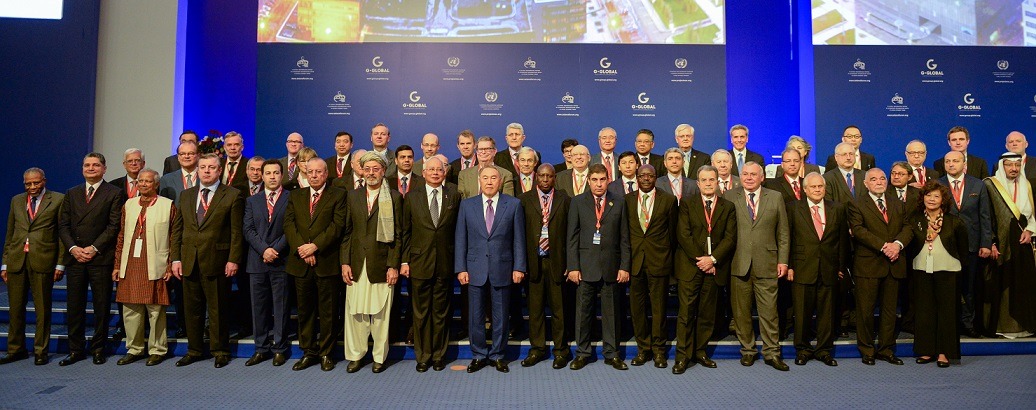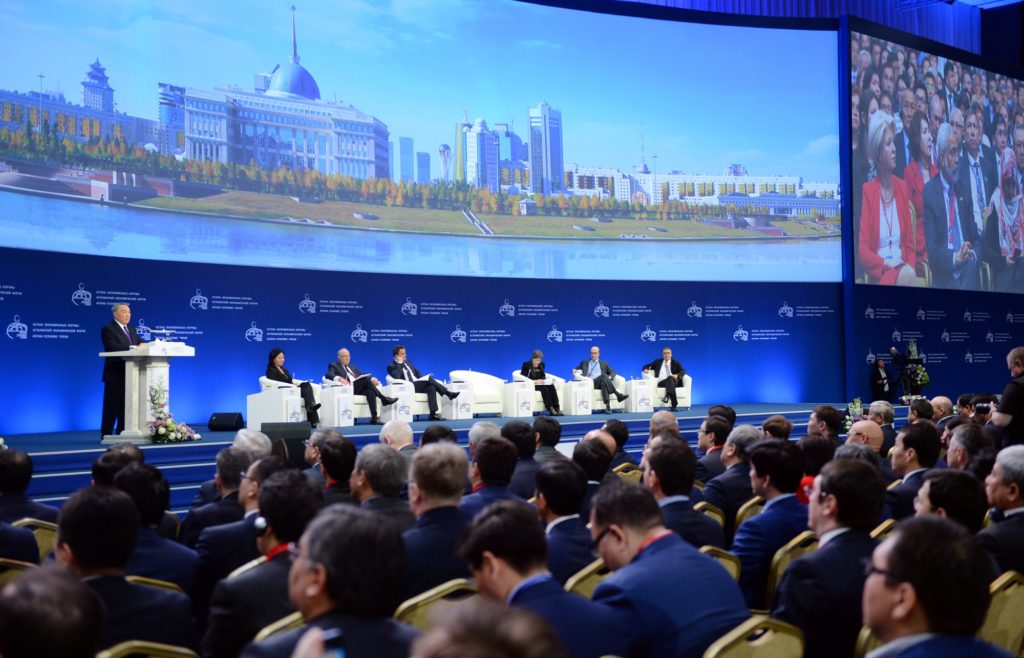The eighth edition of the Astana Economic Forum took place last month on May 21 and 22. This year saw over 10 000 delegates from over 150 countries around the world in attendance. The forum gathered heads of states, ministers, representatives of financial institutions, private sector decision makers and leading academics and Nobel Laureates in Kazakhstan's capital, Astana to discuss 21st century global economic challenges. The opening ceremony saw Prime Minister Mr Karim Massimov outline Kazakhstan’s ambitions to become one of the top 30 economies in the world by 2050.![]()
Among the many panel debates, the reviving of the so called “Silk Road Economic Belt” initiative was high on the agenda. This initiative aims to revitalize the famous ancient silk road, a network of trade and cultural transmission routes that connected east and west 2000 years ago. The new initiative is derived in two components with heavy investment in infrastructure networks on land and also further development on maritime trade connectivity. The ambitious project is part of a wider strategy to stimulate connectivity and co-operation within Eurasia and beyond. Kazakhstan is the 8th largest territorial country in the world and links China in the East with Europe in the West, thus playing an integral part in this project.
The forum addressed the themes of the future world economy, stability and new growth drivers. Former Austrian chancellor Alfred Gusenbauer noted that talented people need to live under the conditions of the rule of law without oppression. He gave the example of the success that former soviet citizens have had since emigrating to Israel, in academia and entrepreneurship. Former Israeli Prime Minister Ehud Barak spoke about the future "robotization" of jobs in both the manufacturing and service industry, and warned that measures will need to be taken to adress the issue of employability of a large segment of people that it would affect.

Kazakshtan's President Nursultan Nazarbayev with other guests of honour during last year's edition of the Astana Economic Forum
Kazakshtan's President Nursultan Nazarbayev addressed the new international geopolitical relations and the threats and challenges that we face whereby international institutions may not be able to guarantee peace and stability. He also spoke about the need to improve food supply for a growing world population. He highlighted Kazakhstan as a good example for tolerance and inter-ethnic harmony among the diverse communities living in the country and lauded the fast economic growth since gaining independence. “We have created a new economy almost from scratch”. Indeed, GDP has grown to above 13 000 US $ per capita today compared to only 1 500 US $ in 1991 when it gained independence. He was enthusiastic and confident about the Silk Road initiative which he argued will create a “Eurasian transcontinental corridor”, and run through over the whole of Kazakhstans’s territory.
Nouriel Rubini, a leading economist, famous for predicting the credit crunch disasters that hit the US in 1998, also attended the forum as one of the panelists in discussion with President Nazarbayev. He believes that Kazaksthan could achieve its goal of becoming the top 30th global economy in 2050 but in order to do so he emphasized the need to diversify their economy.
The Astana Economic forum has become the largest Eurasian forum of its kind and puts Kazakhstan on the spotlight. The dialogue focuses on how to build stable economies, looking into policies with far-reaching visions. As the president announced, “the most important thing is to be one step ahead of the approaching recession and now is the right time. The world hasn’t overcome old problems as new ones have emerged already”. The widespread attendance from all over the world, which gathers prominent politicians, Nobel Prize winners, journalists and private sector decision makers, makes the Astana Economic Forum a platform for particularly insightful dialogue.
By Jonadav Apelblat
The Brussels Times

